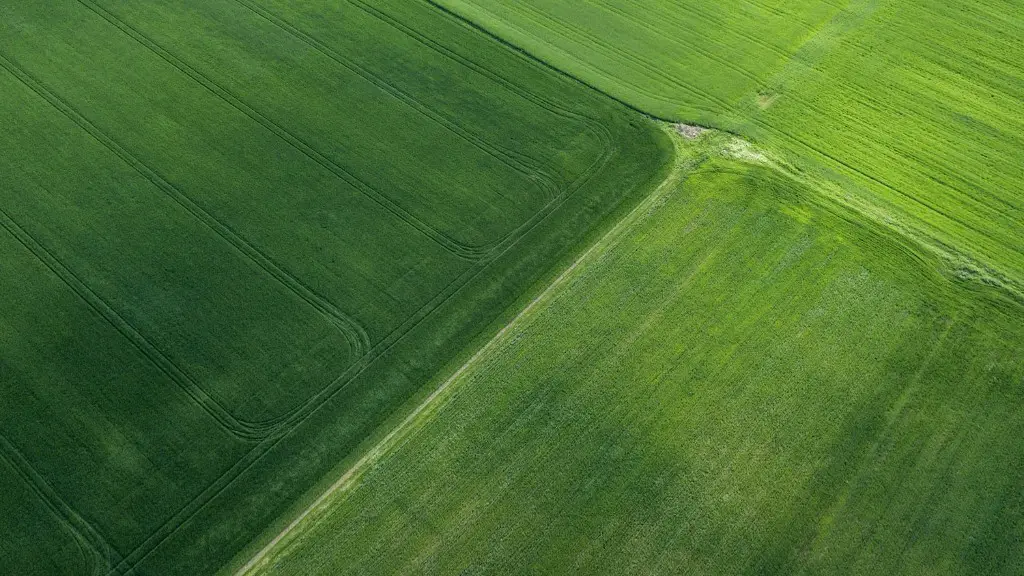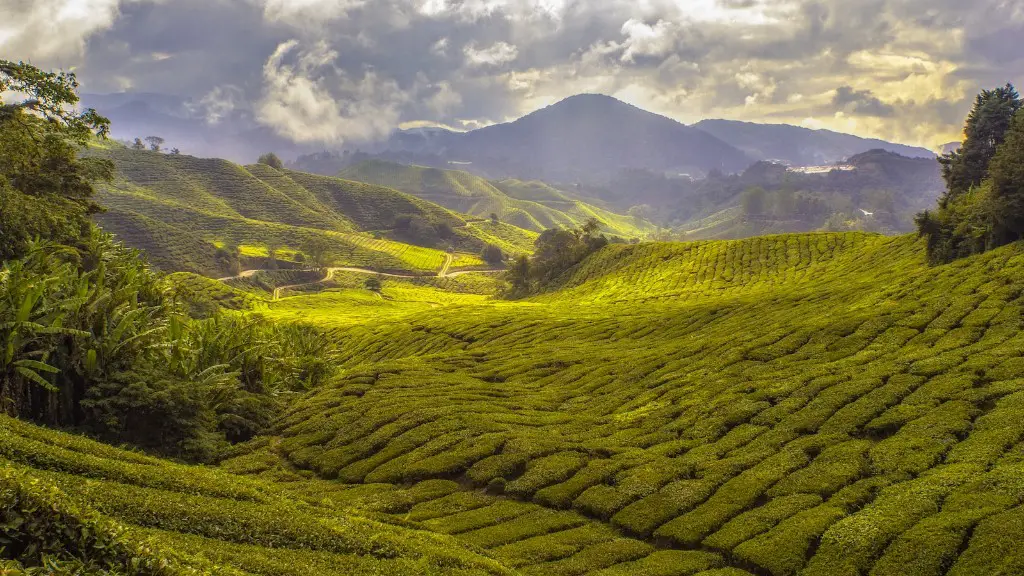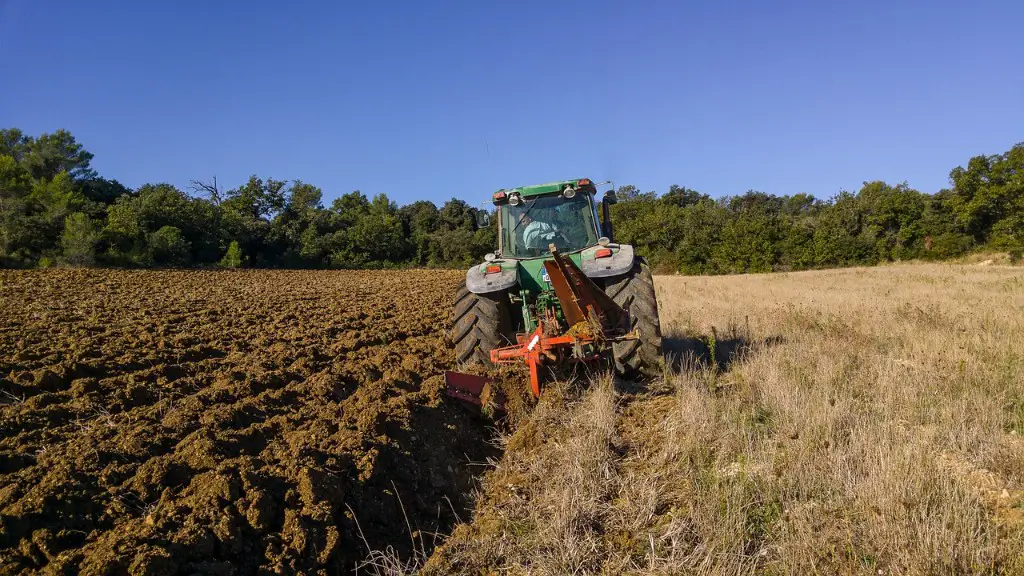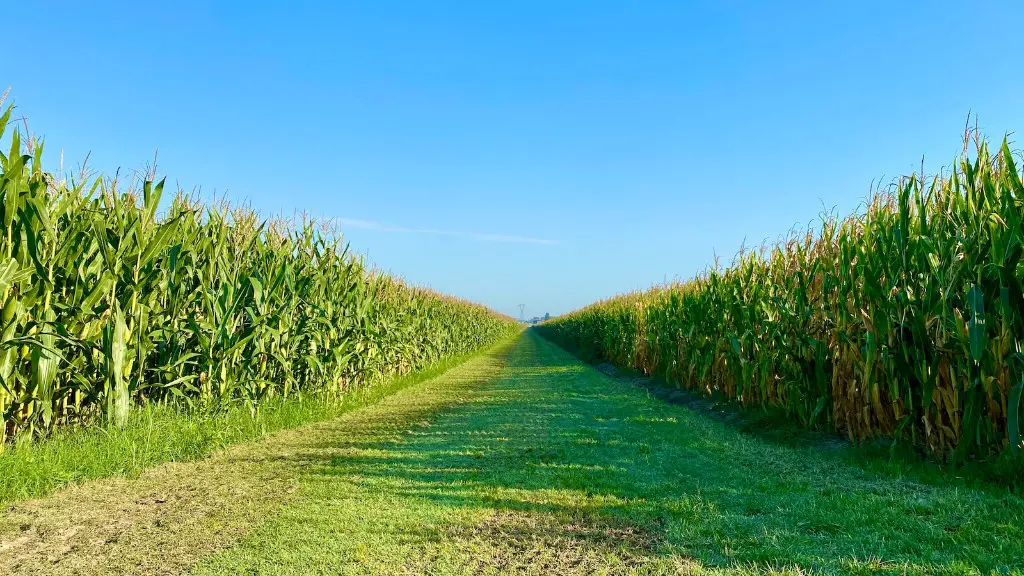Agriculture is the backbone of every economy. It is the sector that provides food, clothes, and shelter. It is the largest source of employment and livelihood in the world. It is the foundation of human civilization. Agriculture impact my life in many ways.
Agriculture is the main source of food for all of us. We all depend on farmers and agricultural workers to grow the crops and raise the livestock that we eat. Without them, we would all starve.
Clothes are also made from agricultural products. Cotton, wool, and leather are all derived from plants and animals that are raised on farms. Even the synthetic fibers in our clothes are made from agricultural products like petroleum and natural gas.
shelter is another essential need that is provided by agriculture. Wood is the primary material used in construction, and it comes from trees that are grown on farms. Farmers also provide us with the stone and gravel that are used to build our homes and offices.
Agriculture is the largest source of employment in the world. Over 1.3 billion people work in the agricultural sector, making it the most important source of livelihoods for people around the globe.
In conclusion, agriculture is essential to all of us. It provides us
There are many ways that agriculture impacts our lives. Agriculture is the process of producing food, feed, fiber, and other goods by farming. Farming includes activities such as planting, harvesting, and raising livestock. Agriculture is a major industry in many countries, and it plays a vital role in our economy.
Most of us are indirectly impacted by agriculture every day. The food we eat and the clothes we wear are all products of agricultural businesses. When we go to the store, we depend on farmers to have grown and harvested the food we need. We also rely on farmers to provide us with fiber for our clothes, furniture, and other products.
Agriculture also impacts our lives in more direct ways. Many people work in the agricultural industry, either on farms or in businesses that support farmers. Agriculture also provides recreation and tourism opportunities for many people.
How do we use agriculture in everyday life?
We often take for granted the many ways that agriculture affects our daily lives. Here are just a few examples:
1. Food: Agriculture is responsible for the food we eat every day.
2. Fuel: crop-based fuels like ethanol and biodiesel are increasingly important sources of energy.
3. Textiles: cotton and other plant-based fibers are used to make many of our clothes.
4. Sleep: comfortable cotton sheets and pillows are a luxury made possible by agriculture.
5. Sports: many sports rely on crops like wheat and corn for field surfaces and equipment.
6. The Economy: agriculture is a vital part of the global economy, providing jobs and food security for billions of people.
7. Personal Care Products: many cosmetics and personal care products contain plant-based ingredients.
8. Entertainment: agriculture plays a role in many forms of entertainment, from movies and TV to video games.
The agricultural sector is a vital part of the US economy, contributing a significant percentage of the country’s gross domestic product. In 2021, agriculture, food, and related industries contributed roughly $1264 trillion to US GDP, accounting for 54 percent of the total. The output of America’s farms alone accounted for $1647 billion of this sum, or approximately 7 percent of US GDP. The agricultural sector plays a vital role in sustaining the US economy and ensuring its continued prosperity.
Why is agriculture important to me
Agriculture is vital to human life. It provides food, clothing, and shelter. It helps people to enjoy a higher quality of life. Agriculture is a complex and ever-changing field. It is important to stay up-to-date on the latest developments in agriculture.
1. It’s the main source of raw materials: Agriculture is the main source of raw materials for industries such as textiles, food processing, and paper.
2. It’s important to international trade: Agriculture is a vital part of international trade, with countries exporting and importing agricultural products to and from each other.
3. It plays a big role in a nation’s revenue: Agriculture is a major contributor to a country’s GDP, with many countries relying heavily on agriculture for their income.
4. It provides employment: Agriculture is a major source of employment, with millions of people around the world working in the agricultural sector.
5. It’s crucial to a country’s development: Agriculture is essential for a country’s development, as it is a major source of food and income.
6. It can help heal the environment: Agriculture can help to heal the environment, as it can help to reduce pollution and improve soil quality.
7. It goes hand-in-hand with war: Agriculture is often a key factor in wars, as countries fight for control of agricultural land and resources.
8. It’s a vital part of the economy: Agriculture is a vital part of the economy, with the agricultural
What are three impacts of agriculture?
Agriculture has a significant impact on the environment, both positive and negative. On the positive side, agriculture can lead to soil conservation, water conservation, and carbon sequestration. On the negative side, agriculture can lead to soil erosion, water pollution, and climate change.
Agriculture is the backbone of the Nigerian economy, contributing an estimated 40% to the country’s Gross Domestic Product (GDP). The sector employs about 60% of the country’s workforce and provides raw materials for a large number of industries.
The importance of agriculture to Nigeria goes beyond just food production and provision. The sector also plays a critical role in employment, the environment, foreign exchange, and exports.
1. Production and Provision of Food for Human Consumption
Agriculture is the main source of food for Nigerians. The sector produces a variety of crops, including cassava, maize, rice, yams, and millet. Agriculture also provides livestock, such as poultry, beef, and fish.
2. Provision of Raw Material
A large number of industries in Nigeria depend on agriculture for their raw materials. For example, the textile industry uses cotton, while the furniture industry uses wood.
3. Employment of Labour
The agricultural sector is a major source of employment in Nigeria. According to the National Bureau of Statistics, the sector employed about 17.5 million people in 2016.
4. Protection of the Environment
Agriculture plays a key role in the protection
What are the five benefits of agriculture?
Farming is good for your health because it is a challenging and stimulating type of work. It also provides a source of income in rural areas. Farm work helps develop younger generations and can also help the environment thrive.
The vast majority of the world’s food needs are met by small farmers, according to the Food and Agriculture Organization of the United Nations (FAO). Agriculture is the economic sector that employs the most people in the world, and the main source of food and income for many people living in poverty.
The FAO estimates that small farmers produce over 80 percent of the world’s food supply. However, they are often marginalised and lack the resources and support they need to be successful.
There is a need for more support for small farmers, in terms of both policy and funding. Without this support, many small farmers will continue to struggle to make a living, and the world will not be able to meet its food needs.
What is the most important thing for agriculture
The use of modern machinery in agricultural lands has led to increased and high-quality production of crops. This in turn has led to an increase in the provision of raw material to industries. This is a positive development as it helps to boost the economy.
Agriculture plays a major role in economic growth and development. It is the provider of food, which is a cornerstone of human existence. As a furnisher of industrial raw materials, it is an important contributor to economic activity in other sectors of the economy.
The contribution of agriculture to economic growth and development can be seen in many ways. For example, agriculture provides the raw materials for many industries, such as food processing, textile, and construction. In addition, agriculture creates employment opportunities for both rural andurban populations. Moreover, agriculture can help to improve the environment and promote conservation of natural resources.
There are, however, some challenges associated with the development of agriculture. One challenge is the need to increase productivity in order to meet the demands of a growing population. Another challenge is the need to adapt to a changing climate. In order to address these challenges, it is important to invest in research and development, and to promoting best practices in agriculture.
What are the positive effects of agriculture on health?
There is growing evidence that inflammation plays a role in many chronic diseases, including heart disease, cancer, and Alzheimer’s disease. Inflammation is a normal response of the body to injury or infection, but when it becomes chronic, it can damage tissues and lead to disease.
There are many lifestyle factors that can contribute to chronic inflammation, including poor diet, lack of exercise, and stress. However, one of the most important things you can do to reduce inflammation is to eat a healthy diet.
A healthy diet includes a variety of whole foods, including fruits, vegetables, whole grains, and healthy fats. It also includes enough protein to meet your needs. Eating a healthy diet can help reduce chronic inflammation and improve your overall health.
1. Soil fertility loss: The loss of soil fertility is one of the major environmental effects of agriculture. This is caused by the depletion of nutrients in the soil, which can lead to lower crop yields and eventually lead to soil erosion.
2. Eutrophication of water bodies: Eutrophication is the process by which water bodies become excessively rich in nutrients, which can lead to the growth of algae and other aquatic plants. This can lead to the depletion of oxygen in the water, which can be harmful to fish and other aquatic life.
3. Deforestation: Deforestation is another major environmental effect of agriculture. This is caused by the clearing of land for farming, which can lead to the loss of habitat for animals, and the release of greenhouse gases into the atmosphere.
4. Climate change: Climate change is another major environmental effect of agriculture. This is caused by the release of greenhouse gases into the atmosphere, which can lead to global warming.
5. Pesticide pollution: Pesticide pollution is another major environmental effect of agriculture. This is caused by the use of pesticides, which can contaminate soil and water, and be harmful to human health.
How did agriculture change human society
More abundant food supplies allowed for the growth of denser populations. Farming tied people to their land and small settlements grew into towns and cities. Agriculture produced enough food that people became free to pursue interests other than worrying about what they were going to eat that day. This led to the development of art, literature, science, and culture.
One of the main social benefits for farm families is the ability to see the direct effects of their work on the people who spend time on the farm. This can be a great source of achievement and fulfilment, knowing that they are making a difference in the lives of individuals. Another social benefit is the ability to help typically excluded people to become more included. This can be done by helping them to access the farm, providing training and support, and ensuring that they are able to participate in the work on the farm. Overall, these social benefits can make a big difference in the lives of farm families and help them to feel more fulfilled.
What are pros and cons of agriculture?
While there are many pros to agriculture, there are also a few cons. One pro is that there is usually an abundance of food. Another pro is that it is typically less dangerous than hunting. However, there can be some drawbacks. One is that there can be conflicts over access to the food supply. Additionally, the weather can sometimes damage crops. Overall, agriculture has been a positive development for humans. It has allowed for specialization and the domestication of key crops. This, in turn, has lead to the creation of civilizations.
Agriculture is the leading source of pollution in many countries. Pesticides, fertilizers and other toxic farm chemicals can poison fresh water, marine ecosystems, air and soil. They also can remain in the environment for generations.
Conclusion
agriculture has a profound impact on my life. It is the primary source of food, fuel, and fiber for me and billions of other people around the world. It supports the economy and provides jobs for millions of people. agriculture also plays a critical role in our ecology, providing habitat for many plants and animals, and helps to purify our air and water.
The Impact of Agriculture on My Life
Agriculture has had a profound impact on my life. It has provided me with the food I eat, the clothes I wear, and the shelter I live in. It has also given me the means to earn a living and support my family.
Without agriculture, I would not be able to enjoy the life I have today. I am grateful for the impact it has had on my life and I look forward to continuing to support the industry that has so greatly affected me.





